Discover the Intriguing World of Monomorium pharaonis
Several elements of nature capture our curiosity, intriguing ants, with their complicated social structure and variety of species, being one of them. Of the vast species of ants, Monomorium pharaonis, commonly known as the Pharaoh ant, stands apart due to its unique traits. Their aggressive nature and industrious disposition symbolize their namesake, the mighty Pharaohs. To truly understand the intricate hierarchy of an ant colony, exploring the world of Monomorium pharaonis promises a captivating journey.
Insight into the Monomorium pharaonis’ World
Polygyny: A Rare Colony Structure
The fascinating Monomorium pharaonis break the mold with their polygynous colony structure. Polygyny suggests the presence of multiple queens in each colony, a stark contrast to other ant species hailing typically a single queen. These numerous queens contribute vastly to the prosperity and growth of their reign, molding a flourishing ant society.
Colony Demography and Development Pace
Monomorium pharaonis colonies house an awe-inspiring workforce in sheer numbers. With colonies housing up to a staggering 1,000,000 workers, their strength and tenacity truly shine. This number is a stark reminder of this species’ potential. A steady and sustainable growth rate drives this abundant population, reflecting community stability.
Physical Attributes Knitting The Monomorium pharaonis Image
Size and Color: Distinct Markings
Size wise, Monomorium pharaonis‘ queen rules, being notably larger than worker ants, priced between 4mm and 5mm. The workers trail behind, measuring between 1.5mm to 2mm. However, their stunning contrasting hues contrast their size disparity.
Antennas, tarsi, and the thoracic region, typically sport a hue ranging from pale yellow to brown. The head and abdomen represent the darker shades of brown, veering to black. Workers are predominantly yellow or orange.
Monomorium pharaonis’ Feeding Profile
Diverse Diet
The adaptable dietary preferences of Monomorium pharaonis are noteworthy, reflecting their versatility. These omnivorous ants enjoy a variety of food sources to sustain their nutritional needs. Cockroaches and crickets form a part of their diet, ensuring a healthy intake of protein. Fruits and vegetables also feature predominantly, marking a rich supply of vitamins and minerals. They also relish syrup, a potent source of energy, ensuring their individual and communal nutritional well-being.
Monomorium pharaonis: Ideal Living Conditions
Concerning Humidity and Temperature
A significant aspect to nurturing a Monomorium pharaonis colony lies in maintaining ideal humidity and temperature. While the arena or foraging area’s humidity levels should lie between 30% and 50%, the nest or brooding area demand a considerable increase, ranging between 50% and 70%. Such conditions simulate the damp environments ants tend to prefer, enhancing their comfort and productivity.
In summary, understanding and caring for Monomorium pharaonis offers thrilling insights into the vibrant ant community, their organized societies, and their integral role in our ecosystem. Their captivating efficiency and fascinating intricacies serve as a testament to nature’s phenomenal creations.
To further delve into the mesmerizing world of ants, visit our ant category page for more enthralling information.

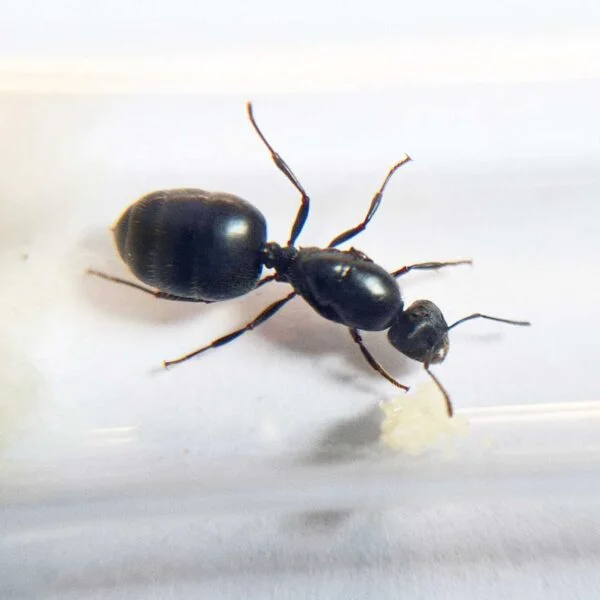

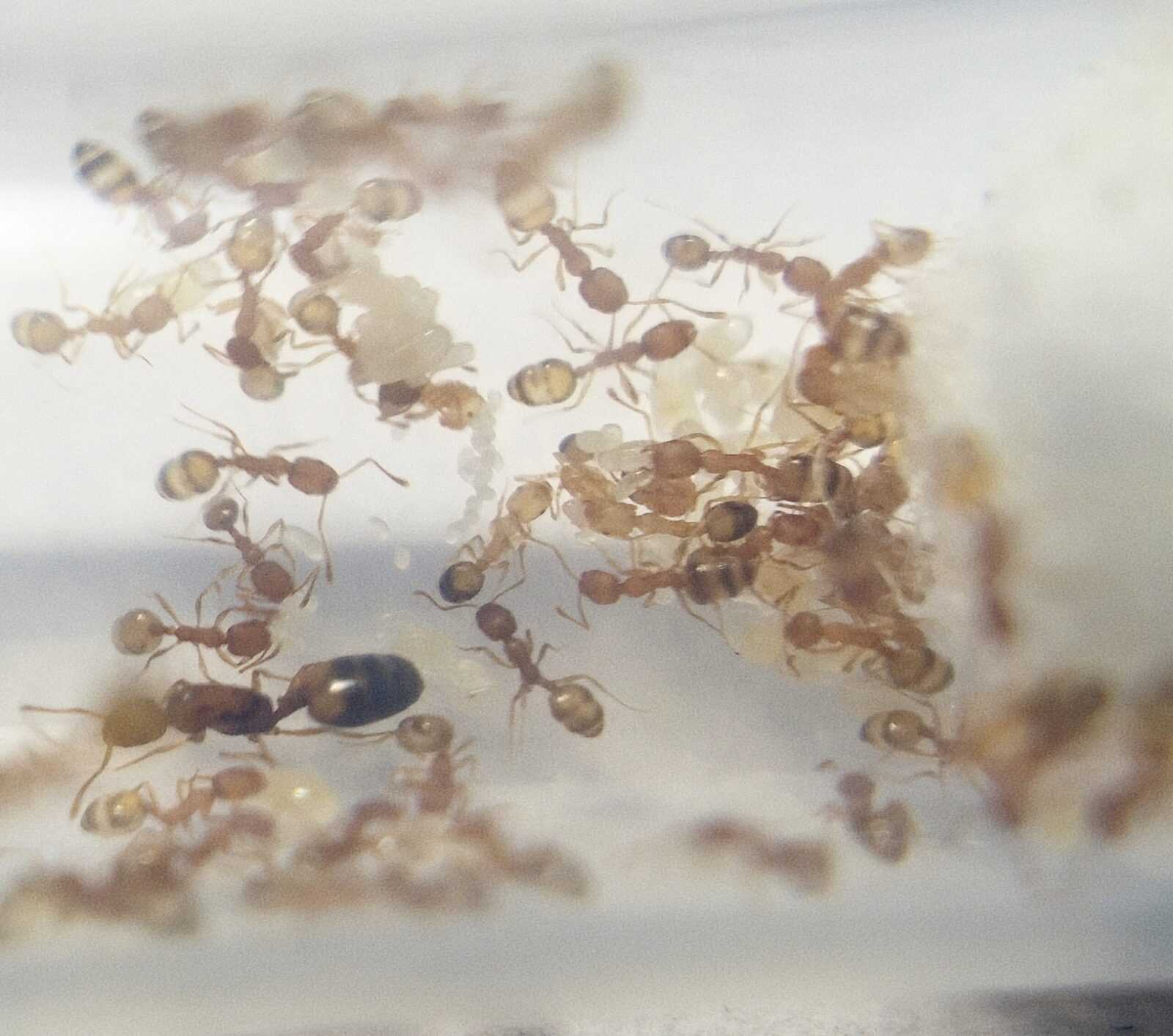
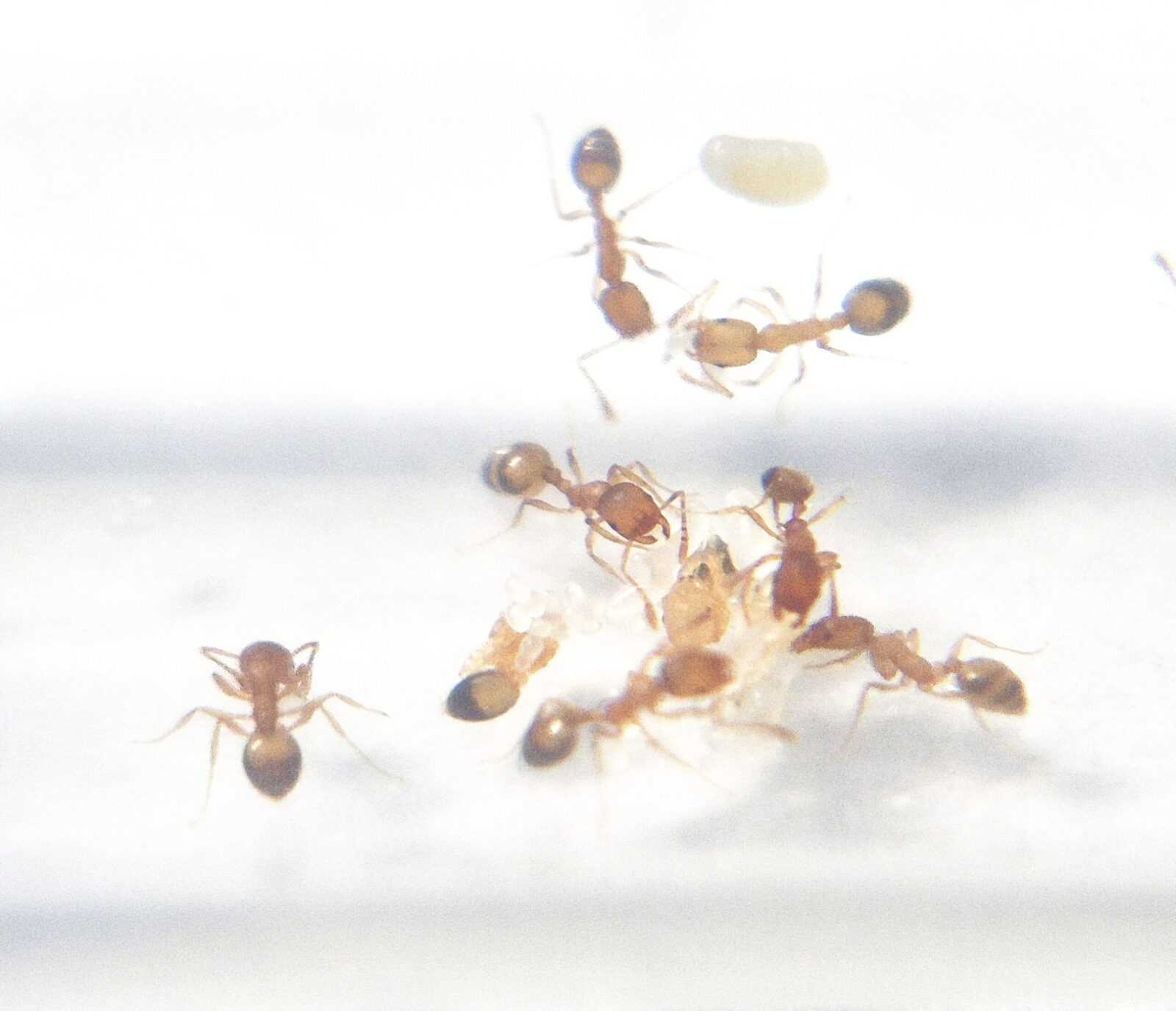













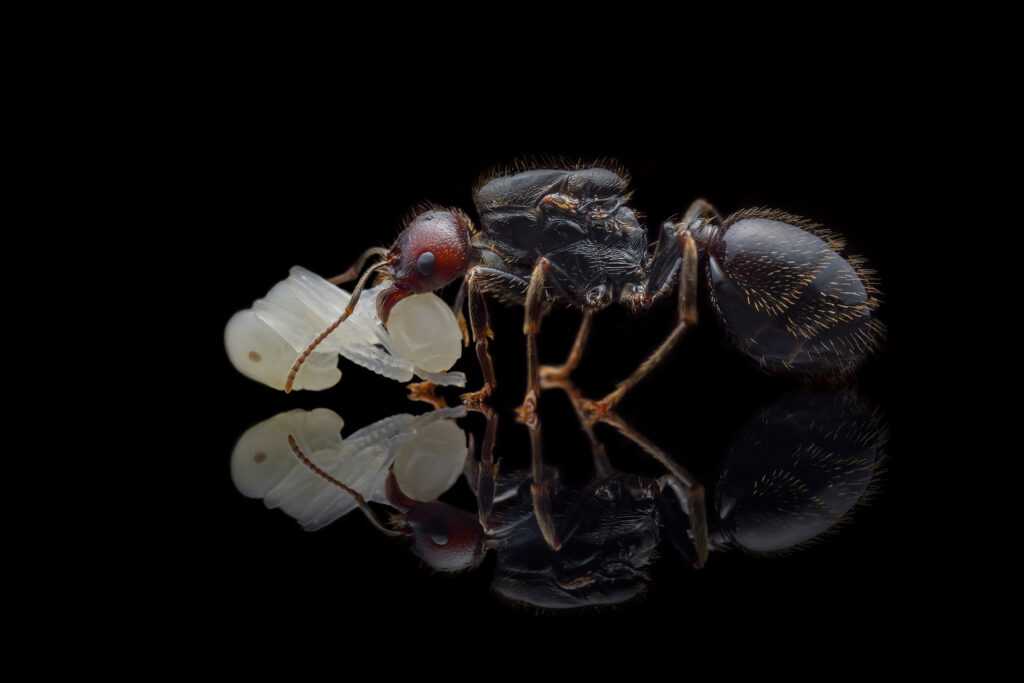
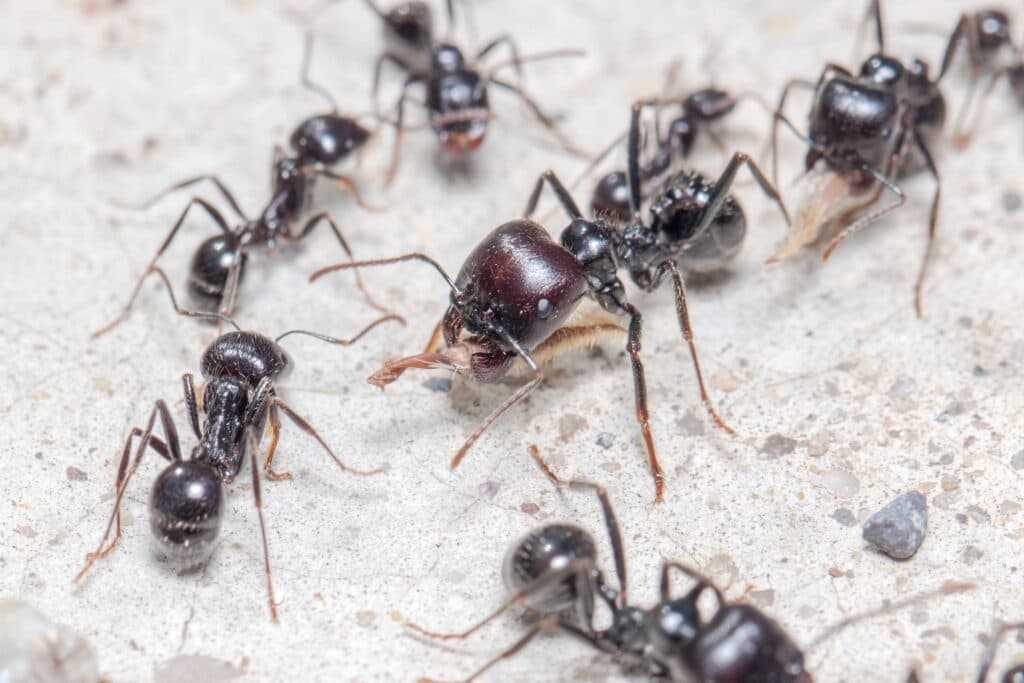

christiang (verified owner) –
It’s a very fascinating ant spices, that is extremely small, yet very intelligent. They will try to escape your inclosure as unlike most ants they do not try to stay near a nest. So make sure, there is no way they can get out.
Otherwise i can recommend these ants if you want to rise an ant colony, of very tiny ants. They will definitely make sure to get your attention in a good way 🙂